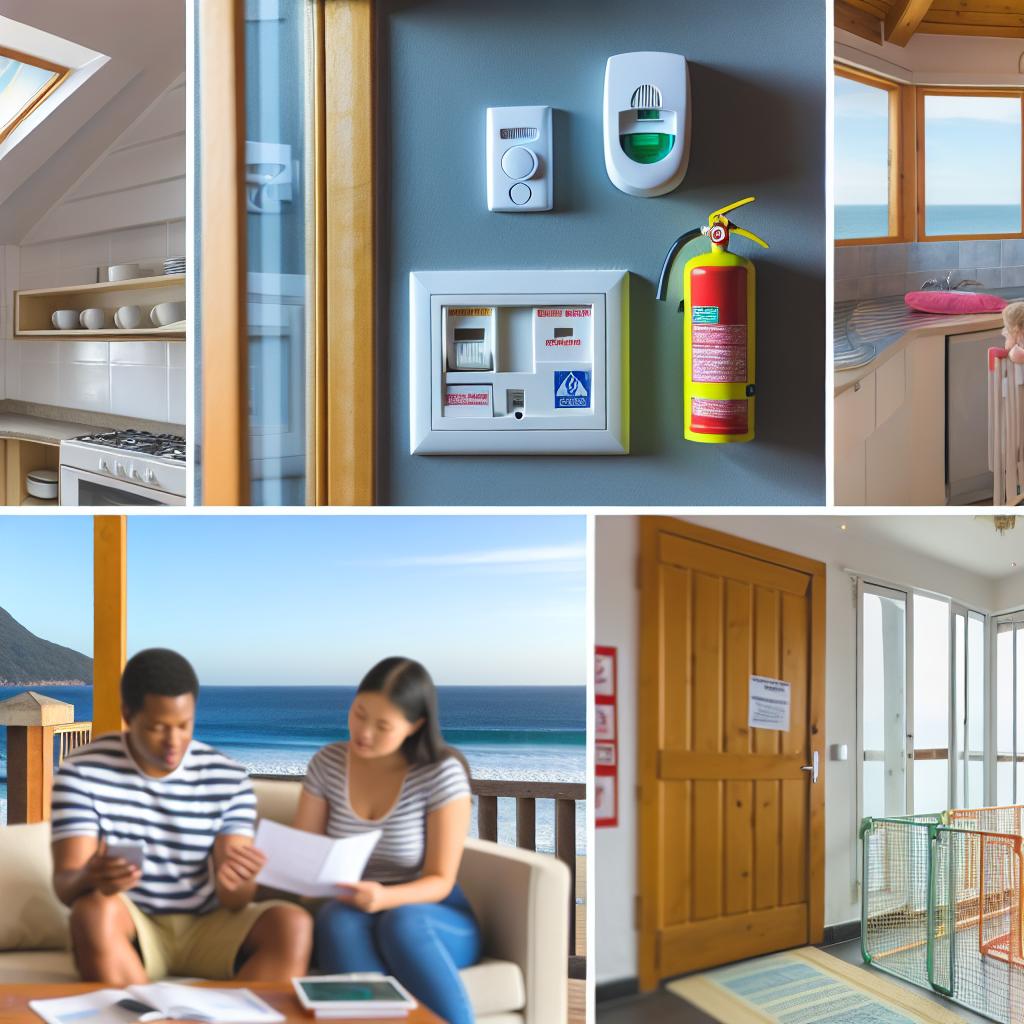Understanding Local Regulations
Before delving into the specifics of safety measures, an understanding of local regulations governing vacation rentals is indispensable. Regulations pertaining to vacation rentals can markedly differ depending on the geographical location of your property. Being well-versed with these laws will aid in avoiding any potential legal entanglements. Local government websites and local tourism boards serve as valuable reservoirs of updated and relevant information. Additionally, retaining the services of a local attorney with expertise in property law can be beneficial in navigating these regulations.
Fire Safety Requirements
Fire safety stands as a pivotal area of concern and is frequently subject to stringent regulations. Ensuring that your property is outfitted with operational smoke detectors and fire extinguishers is essential. Placing a fire evacuation plan conspicuously in every room is equally important. In instances where your rental property includes a fireplace, a gas stove, or barbecue equipment, ensuring they are meticulously maintained and safe for guest use is paramount. Various resources, such as the National Fire Protection Association, offer guidance in this domain.
Installation and Maintenance
The installation of fire safety equipment is not an endpoint but requires regular maintenance. Conduct monthly tests on detectors and adhere to the manufacturer’s guidelines concerning replacements. To ensure compliance and functionality, consider scheduling an annual inspection from a fire safety professional.
Electrical and Structural Safety
Ensuring the safety of your property extends beyond fire safety to encompass electrical and structural safety.
Electrical Safety
It’s crucial that all electrical appliances adhere to the code and undergo regular inspections by a licensed electrician. Cords and outlets must be maintained in pristine condition, devoid of frays or exposure. Awareness of any updates to electrical safety mandated by local codes is also advisable.
Structural Integrity
An evaluation of the structural integrity of your property is essential. Pay particular attention to areas such as stairs, railings, and balconies. Engaging a structural engineer can provide a comprehensive evaluation, thus ensuring that the property remains safe for guests.
Pest Control
Maintaining a property that is free from pests, which could harm guests or trigger allergies, is of utmost importance. Regular pest assessments and treatments may be necessary, especially for properties situated in areas susceptible to infestations. Enlist the services of a certified pest control provider to assist in upholding a pest-free environment.
Security Measures
For the protection of guests and their belongings, it is important to install secure locks on all doors and windows. Consider the adoption of additional security measures, such as motion sensor lights around property entrances or a security camera system at entry points. Ensure that these measures are in compliance with existing privacy laws.
Guest Information
Providing guests with clear instructions and contact information in case of security issues is vital. A list of local emergency numbers, as well as contact information for property management or yourself, should be made readily available to allow for the rapid resolution of any security concerns.
Insurance Coverage
Acquiring appropriate insurance coverage is crucial for safeguarding yourself from liabilities. Review your policy to ensure that it encompasses vacation rental-specific issues, such as guest injuries and property damage. Consulting an insurance professional with expertise in vacation rentals can provide tailored coverage suited to your needs and ensure peace of mind.
Providing Safety Information to Guests
Upon guest arrival, ensure they are well-informed regarding safety protocols. Providing a manual or booklet that outlines emergency procedures, details about safety equipment locations, and any specific property quirks can prove invaluable. Be prepared to respond to any safety-related inquiries guests may have before their stay gets underway.
Understanding that compliance is not solely about meeting regulatory demands but also about providing a secure and safe environment for your guests is crucial. Regularly updating your knowledge and conducting thorough safety assessments can contribute significantly to maintaining a reliable and respected vacation rental property.

 How to ensure your vacation rental complies with safety regulations.
How to ensure your vacation rental complies with safety regulations.